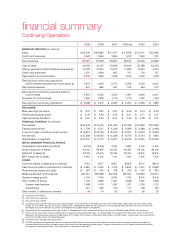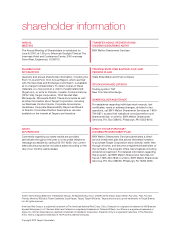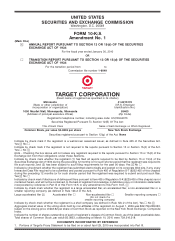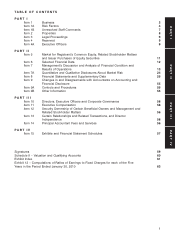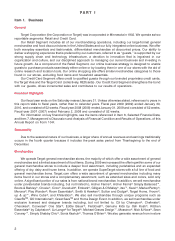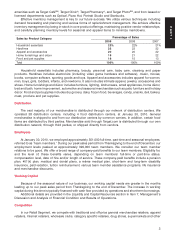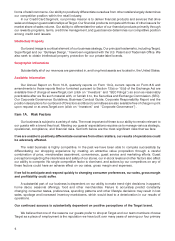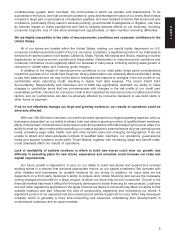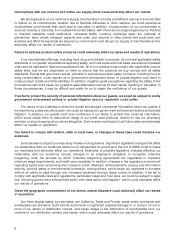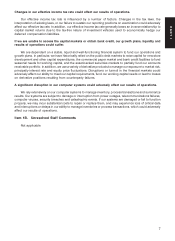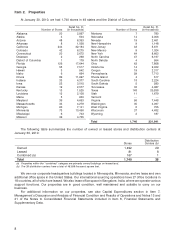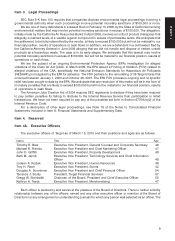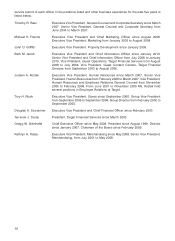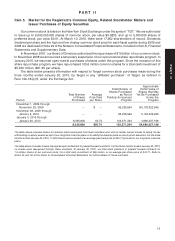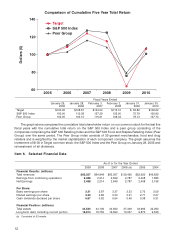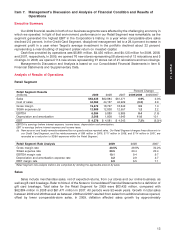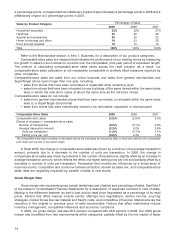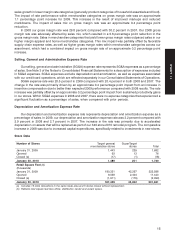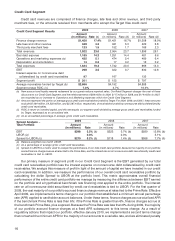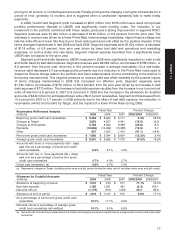Target 2009 Annual Report Download - page 28
Download and view the complete annual report
Please find page 28 of the 2009 Target annual report below. You can navigate through the pages in the report by either clicking on the pages listed below, or by using the keyword search tool below to find specific information within the annual report.
Changes in our effective income tax rate could affect our results of operations.
Our effective income tax rate is influenced by a number of factors. Changes in the tax laws, the
interpretation of existing laws, or our failure to sustain our reporting positions on examination could adversely
affect our effective tax rate. In addition, our effective income tax rate generally bears an inverse relationship to
capital market returns due to the tax-free nature of investment vehicles used to economically hedge our
deferred compensation liabilities.
If we are unable to access the capital markets or obtain bank credit, our growth plans, liquidity and
results of operations could suffer.
We are dependent on a stable, liquid and well-functioning financial system to fund our operations and
growth plans. In particular, we have historically relied on the public debt markets to raise capital for new store
development and other capital expenditures, the commercial paper market and bank credit facilities to fund
seasonal needs for working capital, and the asset-backed securities markets to partially fund our accounts
receivable portfolio. In addition, we use a variety of derivative products to manage our exposure to market risk,
principally interest rate and equity price fluctuations. Disruptions or turmoil in the financial markets could
adversely affect our ability to meet our capital requirements, fund our working capital needs or lead to losses
on derivative positions resulting from counterparty failures.
A significant disruption in our computer systems could adversely affect our results of operations.
We rely extensively on our computer systems to manage inventory, process transactions and summarize
results. Our systems are subject to damage or interruption from power outages, telecommunications failures,
computer viruses, security breaches and catastrophic events. If our systems are damaged or fail to function
properly, we may incur substantial costs to repair or replace them, and may experience loss of critical data
and interruptions or delays in our ability to manage inventories or process transactions, which could adversely
affect our results of operations.
Item 1B. Unresolved Staff Comments
Not applicable
7
PART I


